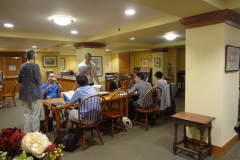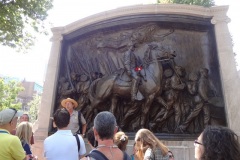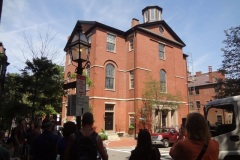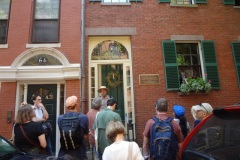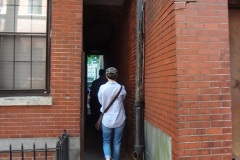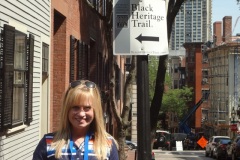Summer Institute Team And Faculty
Download a PDF of Summer Institute Team & Faculty »
Project Team
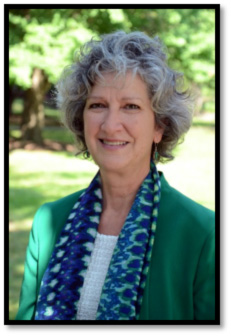 Director: Sandra Harbert Petrulionis is Distinguished Professor of English and American Studies at Pennsylvania State University, Altoona, and directed Summer Institutes in Concord on similar themes in 2017 and 2015. Her scholarship focuses on antebellum authors and reform, especially Thoreau, Alcott, and Transcendentalism, with books including To Set This World Right: The Antislavery Movement in Thoreau’s Concord (Cornell, 2006); The Oxford Handbook of Transcendentalism (2010); and Thoreau in His Own Time (Iowa, 2012). Her seminar on June 29 presents “Radicalizing the Transcendentalists: Concord’s Antislavery Movement.” She’ll also join Rochelle Johnson and Megan Marshall for a round table on July 6 to discuss “Wider Contexts for Transcendentalist Reform: Recovering and Publishing Women’s Lives.”
Director: Sandra Harbert Petrulionis is Distinguished Professor of English and American Studies at Pennsylvania State University, Altoona, and directed Summer Institutes in Concord on similar themes in 2017 and 2015. Her scholarship focuses on antebellum authors and reform, especially Thoreau, Alcott, and Transcendentalism, with books including To Set This World Right: The Antislavery Movement in Thoreau’s Concord (Cornell, 2006); The Oxford Handbook of Transcendentalism (2010); and Thoreau in His Own Time (Iowa, 2012). Her seminar on June 29 presents “Radicalizing the Transcendentalists: Concord’s Antislavery Movement.” She’ll also join Rochelle Johnson and Megan Marshall for a round table on July 6 to discuss “Wider Contexts for Transcendentalist Reform: Recovering and Publishing Women’s Lives.”
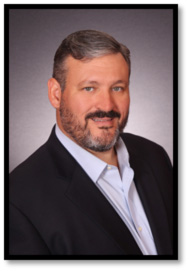 Project Administrator: Michael Frederick has been the Executive Director of the Thoreau Society since 2006 and has served on several non-profit boards. He is skilled in nonprofit management, events, and public relations. His expertise includes graduate work on Thoreau’s social philosophy and ethics, and his degrees include a Master’s in History from Harvard University.
Project Administrator: Michael Frederick has been the Executive Director of the Thoreau Society since 2006 and has served on several non-profit boards. He is skilled in nonprofit management, events, and public relations. His expertise includes graduate work on Thoreau’s social philosophy and ethics, and his degrees include a Master’s in History from Harvard University.
 Assistant Director: Diane Whitley Grote is Professor of English at Austin Community College, where she is extremely active in the Liberal Arts Gateway program, which promotes teaching liberal arts classes no matter the subject. She has served as Assistant Director for many previous Concord Institutes.
Assistant Director: Diane Whitley Grote is Professor of English at Austin Community College, where she is extremely active in the Liberal Arts Gateway program, which promotes teaching liberal arts classes no matter the subject. She has served as Assistant Director for many previous Concord Institutes.
Project Faculty
(faculty are listed below in order of their appearance on the Daily Schedule)
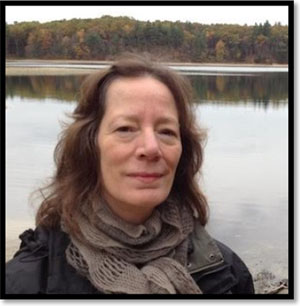 Laura Dassow Walls is Professor Emerita at the University of Notre Dame, where she taught nineteenth-century American literature, particularly the American Transcendentalists, and the history and theory of ecological thought; she also taught for many years at the University of South Carolina and at Lafayette College in Easton, Pennsylvania. She has authored numerous essays on Thoreau, Emerson, Alexander von Humboldt, and related figures; her book Henry David Thoreau: A Life (Chicago 2017) received Phi Beta Kappa’s Christian Gauss Award and the Los Angeles Times Book Award for Biography. Her other books include the award-winning Passage to Cosmos: Alexander von Humboldt and the Shaping of America (2009); Emerson’s Life in Science: The Culture of Truth (2003); and Seeing New Worlds: Henry David Thoreau and Nineteenth-Century Natural Science (1995). Currently she is working on a literary biography of the contemporary American writer Barry Lopez and planning a group biography of the American Transcendentalists. Her June 27 seminar, “Assisting at the Sunrise: The Radical Futures of Transcendentalism,” kicks off the Institute.
Laura Dassow Walls is Professor Emerita at the University of Notre Dame, where she taught nineteenth-century American literature, particularly the American Transcendentalists, and the history and theory of ecological thought; she also taught for many years at the University of South Carolina and at Lafayette College in Easton, Pennsylvania. She has authored numerous essays on Thoreau, Emerson, Alexander von Humboldt, and related figures; her book Henry David Thoreau: A Life (Chicago 2017) received Phi Beta Kappa’s Christian Gauss Award and the Los Angeles Times Book Award for Biography. Her other books include the award-winning Passage to Cosmos: Alexander von Humboldt and the Shaping of America (2009); Emerson’s Life in Science: The Culture of Truth (2003); and Seeing New Worlds: Henry David Thoreau and Nineteenth-Century Natural Science (1995). Currently she is working on a literary biography of the contemporary American writer Barry Lopez and planning a group biography of the American Transcendentalists. Her June 27 seminar, “Assisting at the Sunrise: The Radical Futures of Transcendentalism,” kicks off the Institute.
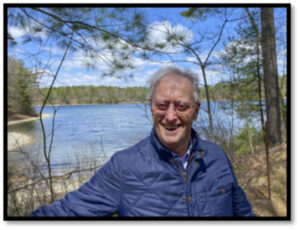 Robert A. Gross is the James L. and Shirley A. Draper Professor of Early American History Emeritus at the University of Connecticut; he focuses on the social and cultural history of the United States, from the colonial era through the nineteenth century. He received the Bancroft Prize for his first book, The Minutemen and Their World (25th anniversary edition, 2001). The Transcendentalists and Their World, his reconstruction of Concord in the era of Emerson and Thoreau, appeared with Farrar, Straus & Giroux in 2021. His seminar on “Concord and Boston in the Age of Emerson, Thoreau, and Fuller” takes place on June 28.
Robert A. Gross is the James L. and Shirley A. Draper Professor of Early American History Emeritus at the University of Connecticut; he focuses on the social and cultural history of the United States, from the colonial era through the nineteenth century. He received the Bancroft Prize for his first book, The Minutemen and Their World (25th anniversary edition, 2001). The Transcendentalists and Their World, his reconstruction of Concord in the era of Emerson and Thoreau, appeared with Farrar, Straus & Giroux in 2021. His seminar on “Concord and Boston in the Age of Emerson, Thoreau, and Fuller” takes place on June 28.
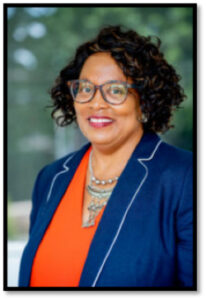 Barbara McCaskill is Professor of English at the University of Georgia and Associate Academic Director of the Willson Center for Humanities & Arts. Her recent books include The Magnificent Peter Thomas Stanford, Transatlantic Reformer and Race Man (University of Georgia Press, 2020) and Love, Liberation, and Escaping Slavery: William and Ellen Craft in Cultural Memory (University of Georgia Press, 2015). She also has co-edited the 1880-1900 collection of original essays for the African American Literature in Transition eighteen-volume series (Cambridge University Press, forthcoming 2022). She co-curates the sites “Digital Clinton,” about the fugitive slave Ellen Craft’s Georgia birthplace, and “Black Activism: A Transatlantic Legacy.” She is a co-principal investigator for Culture and Community at the Penn Center National Historic Landmark, a multiyear project funded by the Andrew W. Mellon Foundation, consisting of public conversations, experiential learning classes, and artist residencies. She will present a seminar on June 30 on the lawn of The Robbins House in Concord on “The Two Ellens: Black Women and the Antebellum Lecture Circuit.”
Barbara McCaskill is Professor of English at the University of Georgia and Associate Academic Director of the Willson Center for Humanities & Arts. Her recent books include The Magnificent Peter Thomas Stanford, Transatlantic Reformer and Race Man (University of Georgia Press, 2020) and Love, Liberation, and Escaping Slavery: William and Ellen Craft in Cultural Memory (University of Georgia Press, 2015). She also has co-edited the 1880-1900 collection of original essays for the African American Literature in Transition eighteen-volume series (Cambridge University Press, forthcoming 2022). She co-curates the sites “Digital Clinton,” about the fugitive slave Ellen Craft’s Georgia birthplace, and “Black Activism: A Transatlantic Legacy.” She is a co-principal investigator for Culture and Community at the Penn Center National Historic Landmark, a multiyear project funded by the Andrew W. Mellon Foundation, consisting of public conversations, experiential learning classes, and artist residencies. She will present a seminar on June 30 on the lawn of The Robbins House in Concord on “The Two Ellens: Black Women and the Antebellum Lecture Circuit.”
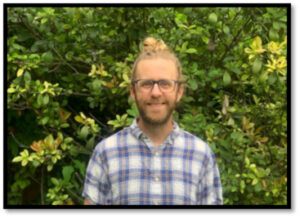 James Finley is Associate Professor of English at Texas A&M University, San Antonio. He is the editor of Henry David Thoreau in Context (Cambridge, 2017) and the author of several recent articles on Thoreau, Frederick Douglass, Henry Bibb, and social justice efforts during the antebellum era. He’ll present an afternoon seminar on June 30 on “Civil Disobedience from the Nineteenth to the Twenty-First Century: Scholarship, Teaching, Praxis.”
James Finley is Associate Professor of English at Texas A&M University, San Antonio. He is the editor of Henry David Thoreau in Context (Cambridge, 2017) and the author of several recent articles on Thoreau, Frederick Douglass, Henry Bibb, and social justice efforts during the antebellum era. He’ll present an afternoon seminar on June 30 on “Civil Disobedience from the Nineteenth to the Twenty-First Century: Scholarship, Teaching, Praxis.”
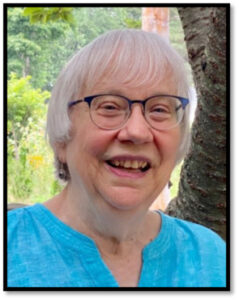 Phyllis Cole is Professor Emerita of English, Women’s Studies, and American Studies at Penn State Brandywine and the author of Mary Moody Emerson and the Origins of Transcendentalism: A Family History (Oxford, 1998). She co-edited the recent collection Toward a Genealogy of Female Transcendentalism (Georgia, 2014) and is a leading scholar of New England Transcendentalism. In 2018, Cole was honored with the Society for the Study of American Women Writers Lifetime Achievement Award. Her July 4th seminar is on “Transcendentalist Women and Reform: Circles and Intersections.”
Phyllis Cole is Professor Emerita of English, Women’s Studies, and American Studies at Penn State Brandywine and the author of Mary Moody Emerson and the Origins of Transcendentalism: A Family History (Oxford, 1998). She co-edited the recent collection Toward a Genealogy of Female Transcendentalism (Georgia, 2014) and is a leading scholar of New England Transcendentalism. In 2018, Cole was honored with the Society for the Study of American Women Writers Lifetime Achievement Award. Her July 4th seminar is on “Transcendentalist Women and Reform: Circles and Intersections.”
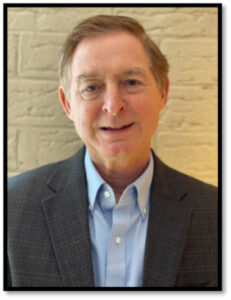 Daniel Shealy is Professor of English at the University of North Carolina, Charlotte. He has edited or authored eleven books on Louisa May Alcott, including the Selected Letters of Louisa May Alcott and the Journals of Louisa May Alcott (Georgia, 1995 and 1997); Little Women: An Annotated Edition (Harvard, 2013); and Little Women at 150 (Mississippi, 2022). He is currently working on a book about Concord during the Civil War, which includes a discussion of Alcott’s nursing service. At a morning seminar at Orchard House, the Alcotts’ home in Concord, Daniel will discuss “‘Yours for Reform of All Kinds’: Louisa May Alcott, the Civil War, and Reform.”
Daniel Shealy is Professor of English at the University of North Carolina, Charlotte. He has edited or authored eleven books on Louisa May Alcott, including the Selected Letters of Louisa May Alcott and the Journals of Louisa May Alcott (Georgia, 1995 and 1997); Little Women: An Annotated Edition (Harvard, 2013); and Little Women at 150 (Mississippi, 2022). He is currently working on a book about Concord during the Civil War, which includes a discussion of Alcott’s nursing service. At a morning seminar at Orchard House, the Alcotts’ home in Concord, Daniel will discuss “‘Yours for Reform of All Kinds’: Louisa May Alcott, the Civil War, and Reform.”
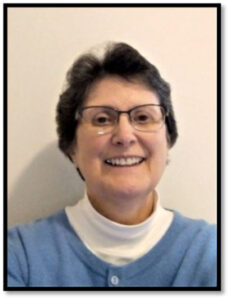 Melissa McFarland Pennell is Professor of English Emerita at the University of Massachusetts, Lowell, and is an expert on the history of the Lowell Mills. Her books include Masterpieces of American Romantic Literature (Greenwood, 2006). Her expertise includes the Transcendentalists’ responses to rising industrialization in antebellum America, especially with developments in Concord’s neighboring community of Lowell, Massachusetts. She will lead a seminar and lead a guided tour on July 6 at Lowell Mills National Historical Park on “Female Operatives, Self-Culture, and Labor Reform in Early Industrial Lowell.”
Melissa McFarland Pennell is Professor of English Emerita at the University of Massachusetts, Lowell, and is an expert on the history of the Lowell Mills. Her books include Masterpieces of American Romantic Literature (Greenwood, 2006). Her expertise includes the Transcendentalists’ responses to rising industrialization in antebellum America, especially with developments in Concord’s neighboring community of Lowell, Massachusetts. She will lead a seminar and lead a guided tour on July 6 at Lowell Mills National Historical Park on “Female Operatives, Self-Culture, and Labor Reform in Early Industrial Lowell.”
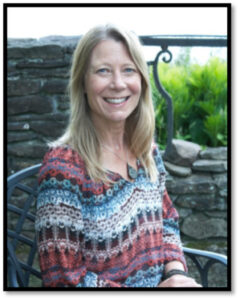 Rochelle Johnson is Professor of English and Environmental Studies at the College of Idaho in Boise and the current President of the Thoreau Society. Her books include Passions for Nature: Nineteenth-Century America’s Aesthetics of Alienation (Georgia 2009), Reading the Earth: New Directions in the Study of Literature and the Environment (Idaho, 1998), and several works on Susan Fenimore Cooper. She will join Megan Marshall and Sandy Petrulionis for a round table on July 6 on “Wider Contexts for Transcendentalist Reform: Recovering and Publishing Women’s Lives.”
Rochelle Johnson is Professor of English and Environmental Studies at the College of Idaho in Boise and the current President of the Thoreau Society. Her books include Passions for Nature: Nineteenth-Century America’s Aesthetics of Alienation (Georgia 2009), Reading the Earth: New Directions in the Study of Literature and the Environment (Idaho, 1998), and several works on Susan Fenimore Cooper. She will join Megan Marshall and Sandy Petrulionis for a round table on July 6 on “Wider Contexts for Transcendentalist Reform: Recovering and Publishing Women’s Lives.”
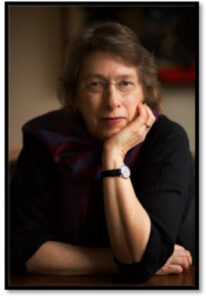 Megan Marshall is the Charles Wesley Emerson College Professor of Creative Writing at Emerson College in Boston, and a past president of the Society of American Historians. Her books include The Peabody Sisters: Three Women Who Ignited American Romanticism (Houghton Mifflin, 2005), and Margaret Fuller: A New American Life (Houghton Mifflin Harcourt, 2013), which was awarded the Pulitzer Prize in Biography. She will join Rochelle Johnson and Sandy Petrulionis for a round table on July 6 on “Wider Contexts for Transcendentalist Reform: Recovering and Publishing Women’s Lives.”
Megan Marshall is the Charles Wesley Emerson College Professor of Creative Writing at Emerson College in Boston, and a past president of the Society of American Historians. Her books include The Peabody Sisters: Three Women Who Ignited American Romanticism (Houghton Mifflin, 2005), and Margaret Fuller: A New American Life (Houghton Mifflin Harcourt, 2013), which was awarded the Pulitzer Prize in Biography. She will join Rochelle Johnson and Sandy Petrulionis for a round table on July 6 on “Wider Contexts for Transcendentalist Reform: Recovering and Publishing Women’s Lives.”
 Lance Newman is Dean of the School of Arts and Sciences at Westminster College in Salt Lake City. He is the author of The Literary Heritage of the Environmental Justice Movement: Landscapes of Revolution in Transatlantic Romanticism (2019) and Our Common Dwelling: Henry Thoreau, Transcendentalism, and the Class Politics of Nature (2006). He is also the editor of The Grand Canyon Reader (2013), as well as several textbooks and collections of scholarly essays. His scholarly articles have appeared in American Literature, New England Quarterly, ISLE, Reconstruction, Electronic Book Review, and other journals. His July 7 seminar will be on “The Transcendentalists and Environmental Justice.”
Lance Newman is Dean of the School of Arts and Sciences at Westminster College in Salt Lake City. He is the author of The Literary Heritage of the Environmental Justice Movement: Landscapes of Revolution in Transatlantic Romanticism (2019) and Our Common Dwelling: Henry Thoreau, Transcendentalism, and the Class Politics of Nature (2006). He is also the editor of The Grand Canyon Reader (2013), as well as several textbooks and collections of scholarly essays. His scholarly articles have appeared in American Literature, New England Quarterly, ISLE, Reconstruction, Electronic Book Review, and other journals. His July 7 seminar will be on “The Transcendentalists and Environmental Justice.”
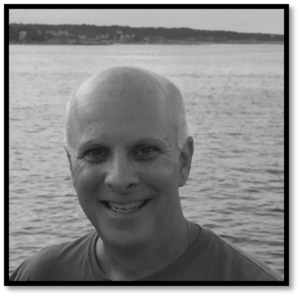 Joshua Bellin is Professor of English at La Roche University in Pittsburgh, Pennsylvania. His books include Medicine Bundle: Indian Sacred Performance and American Literature, 1824-1932 (Penn, 2007), and The Demon of the Continent: Indians and the Shaping of American Literature (Penn, 2000). With Joyce Rain Anderson, Linda Coombs, and John Kucich,” on July 7, he’ll serve on a round table that focuses on “Engaging with Native American Rights in Antebellum America.”
Joshua Bellin is Professor of English at La Roche University in Pittsburgh, Pennsylvania. His books include Medicine Bundle: Indian Sacred Performance and American Literature, 1824-1932 (Penn, 2007), and The Demon of the Continent: Indians and the Shaping of American Literature (Penn, 2000). With Joyce Rain Anderson, Linda Coombs, and John Kucich,” on July 7, he’ll serve on a round table that focuses on “Engaging with Native American Rights in Antebellum America.”
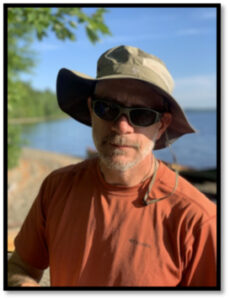 John Kucich is Professor of English at Bridgewater State University in Bridgewater, Massachusetts. His books include Rediscovering the Maine Woods: Thoreau’s Legacy in an Unsettled Land (Massachusetts, 2019), and Ghostly Communion: Cross-Cultural Spiritualism in 19th Century American Literature (Dartmouth, 2004). With Joyce Rain Anderson, Joshua Bellin, and Linda Coombs,” on July 7, he’ll serve on a round table that focuses on “Engaging with Native American Rights in Antebellum America.”
John Kucich is Professor of English at Bridgewater State University in Bridgewater, Massachusetts. His books include Rediscovering the Maine Woods: Thoreau’s Legacy in an Unsettled Land (Massachusetts, 2019), and Ghostly Communion: Cross-Cultural Spiritualism in 19th Century American Literature (Dartmouth, 2004). With Joyce Rain Anderson, Joshua Bellin, and Linda Coombs,” on July 7, he’ll serve on a round table that focuses on “Engaging with Native American Rights in Antebellum America.”
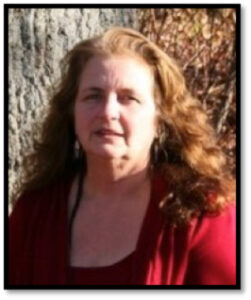 Joyce Rain Anderson is Professor of Rhetoric and Composition in the English Department and Coordinator of Native American and Indigenous Studies at Bridgewater State University in Bridgewater, Massachusetts; she also serves as Faculty Associate for the university’s Pine Ridge Partnership. She is co-editor of Survivance, Sovereignty, and Story: Teaching American Indian Rhetorics (Utah State, 2015) and the author of scholarly and pedagogical articles on Indigenous history and culture. With Joshua Bellin, Linda Coombs, and John Kucich,” on July 7, she’ll serve on a round table that focuses on “Engaging with Native American Rights in Antebellum America.”
Joyce Rain Anderson is Professor of Rhetoric and Composition in the English Department and Coordinator of Native American and Indigenous Studies at Bridgewater State University in Bridgewater, Massachusetts; she also serves as Faculty Associate for the university’s Pine Ridge Partnership. She is co-editor of Survivance, Sovereignty, and Story: Teaching American Indian Rhetorics (Utah State, 2015) and the author of scholarly and pedagogical articles on Indigenous history and culture. With Joshua Bellin, Linda Coombs, and John Kucich,” on July 7, she’ll serve on a round table that focuses on “Engaging with Native American Rights in Antebellum America.”
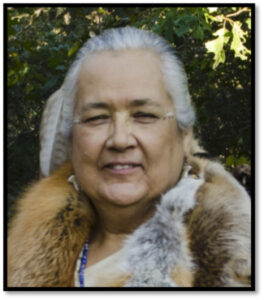 Linda Coombs is an Educator with the Wampanoag Language Reclamation Project and the Mashpee Wampanoag Tribe’s Education Department and Tribal Historic Preservation Office. She has worked in various capacities for educational programs in Massachusetts, including as the Associate Director of the Wampanoag Indigenous Program for Plimoth Plantation. With Joyce Rain Anderson, Joshua Bellin, and John Kucich,” on July 7, she’ll serve on a round table that focuses on “Engaging with Native American Rights in Antebellum America.”
Linda Coombs is an Educator with the Wampanoag Language Reclamation Project and the Mashpee Wampanoag Tribe’s Education Department and Tribal Historic Preservation Office. She has worked in various capacities for educational programs in Massachusetts, including as the Associate Director of the Wampanoag Indigenous Program for Plimoth Plantation. With Joyce Rain Anderson, Joshua Bellin, and John Kucich,” on July 7, she’ll serve on a round table that focuses on “Engaging with Native American Rights in Antebellum America.”
Institutional Curators
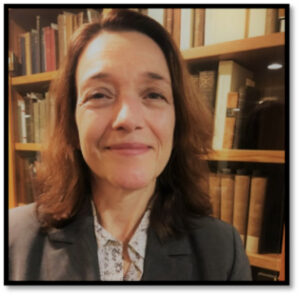 Anke Voss is Curator of Special Collections for the Concord Free Public Library. She will provide an overview of Transcendentalists’ manuscripts and other materials relating to social reform in their institutional holdings. During three research visits, she will work closely with Summer Scholars as they develop their research and pedagogical projects.
Anke Voss is Curator of Special Collections for the Concord Free Public Library. She will provide an overview of Transcendentalists’ manuscripts and other materials relating to social reform in their institutional holdings. During three research visits, she will work closely with Summer Scholars as they develop their research and pedagogical projects.
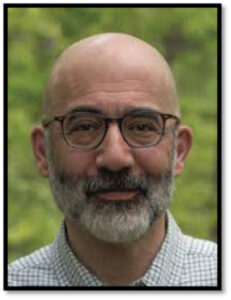 Jeffrey Cramer is Curator of Collections at the Thoreau Institute Library at the Walden Woods Project in Lincoln, Massachusetts. His many books include Walden: A Fully Annotated Edition (Yale, 2004) He will introduce the library’s rich archives relating to Thoreau and Transcendentalism and will be available to assist participants during individual research visits.
Jeffrey Cramer is Curator of Collections at the Thoreau Institute Library at the Walden Woods Project in Lincoln, Massachusetts. His many books include Walden: A Fully Annotated Edition (Yale, 2004) He will introduce the library’s rich archives relating to Thoreau and Transcendentalism and will be available to assist participants during individual research visits.
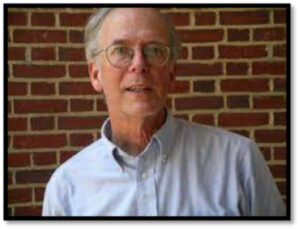 David Wood is Curator of the Concord Museum and will provide a guided tour of the museum’s rich holdings and give a talk on June 27 on “Material Culture in Antebellum America in the Concord Museum.”
David Wood is Curator of the Concord Museum and will provide a guided tour of the museum’s rich holdings and give a talk on June 27 on “Material Culture in Antebellum America in the Concord Museum.”
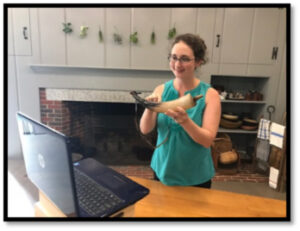 Jenny Gratz is Assistant Director of Education at the Concord Museum; on July 8, she will conduct an afternoon program on “Engaging with Objects: Teaching with Material Culture.”
Jenny Gratz is Assistant Director of Education at the Concord Museum; on July 8, she will conduct an afternoon program on “Engaging with Objects: Teaching with Material Culture.”
Tour Guides
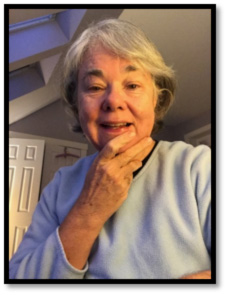 Jayne Gordon lived in Concord for close to a half century before moving to Damariscotta, Maine four years ago. She retired as Director of Education and Public Programs of the Massachusetts Historical Society, and before that was Director of the Thoreau Society and of Alcotts’ Orchard House, and Director of Education at both the Walden Woods Project and the Concord Museum. She has led ten weeklong National Endowment for the Humanities workshops in Concord for K-12 teachers on both the American Revolution and the world of Henry Thoreau. Jayne taught a local history course and designed tour guide training for the Town of Concord for over two decades. Her focus – in her career as a museum educator, administrator, and consultant, and now teaching courses in Maine – has consistently been the intersection of landscape, literature, and local history. She will lead a walking tour on Concord’s black and antislavery history.
Jayne Gordon lived in Concord for close to a half century before moving to Damariscotta, Maine four years ago. She retired as Director of Education and Public Programs of the Massachusetts Historical Society, and before that was Director of the Thoreau Society and of Alcotts’ Orchard House, and Director of Education at both the Walden Woods Project and the Concord Museum. She has led ten weeklong National Endowment for the Humanities workshops in Concord for K-12 teachers on both the American Revolution and the world of Henry Thoreau. Jayne taught a local history course and designed tour guide training for the Town of Concord for over two decades. Her focus – in her career as a museum educator, administrator, and consultant, and now teaching courses in Maine – has consistently been the intersection of landscape, literature, and local history. She will lead a walking tour on Concord’s black and antislavery history.
 Richard Smith has lectured on and written about antebellum United States and 19th-century American literature since 1995. He has worked as a public historian and Living History Interpreter since 1999 and has portrayed Henry Thoreau at Walden Pond and around the country. On June 27, he will lead a guided tour of Walden Woods, including the site of Thoreau’s famous cabin.
Richard Smith has lectured on and written about antebellum United States and 19th-century American literature since 1995. He has worked as a public historian and Living History Interpreter since 1999 and has portrayed Henry Thoreau at Walden Pond and around the country. On June 27, he will lead a guided tour of Walden Woods, including the site of Thoreau’s famous cabin.
Click photo to see larger version.


